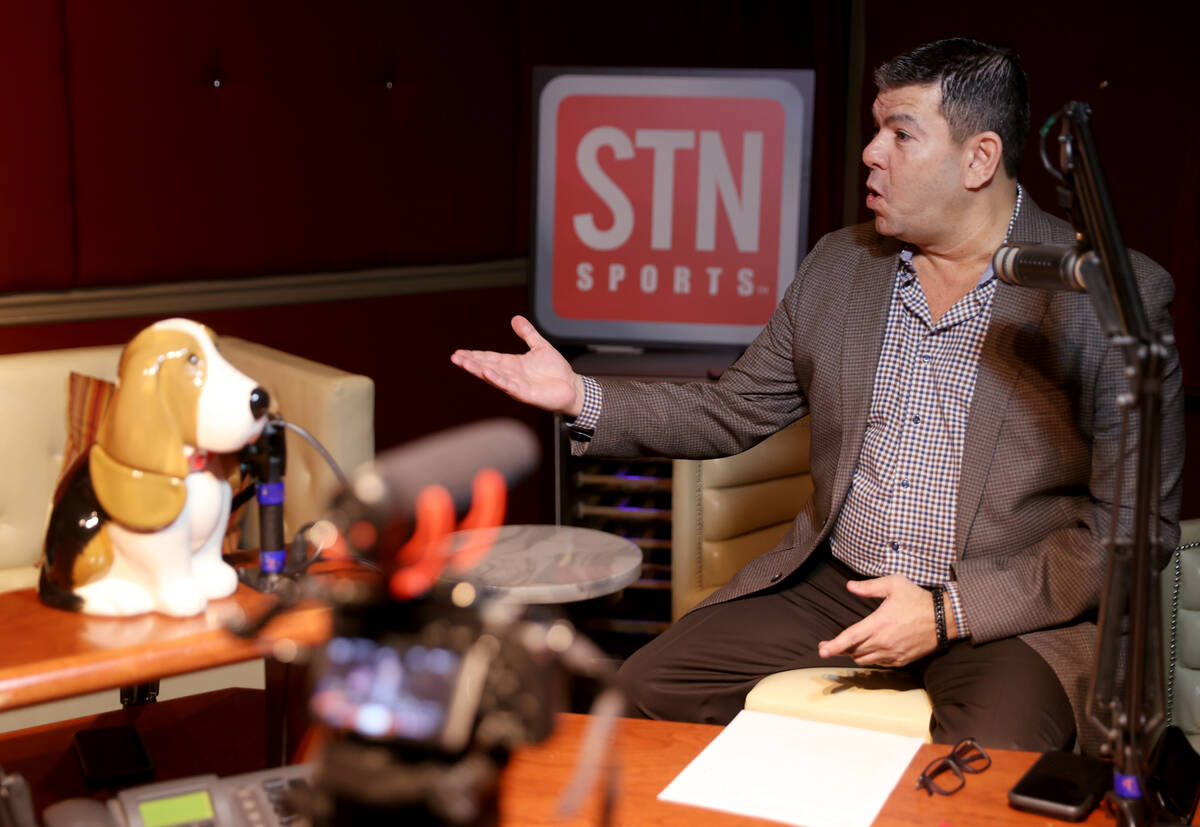Fact or fiction: Do sportsbooks balance bets to lock in profit?
There is a popular belief that sportsbooks take an equal amount of money on both sides of a game to guarantee a profit.
Is it fact or fiction? I asked five longtime Las Vegas bookmakers about the assumption, and they all said it’s essentially fiction.
“That’s a fallacy,” former William Hill and Caesars Sportsbook director Nick Bogdanovich said. “It never happens that way. The books always have decisions. That’s the bottom line. And some are bigger than others.”
Red Rock Resort sportsbook director Chuck Esposito said taking balanced action on every game is almost impossible when you factor in parlays and teasers attached to each contest.
“Ideally, if you could be in that position, it would be great. But it’s somewhat of a myth to be able to divide action equally on every game,” he said. “We’re going to have a vested interest in every game in every sport.”
Westgate SuperBook vice president Jay Kornegay likened the belief to “an urban legend.”
“It makes sense to think that way, but it’s a little bit more detailed than that,” he said.
In his book “Then One Day … 40 Years of Bookmaking in Nevada,” South Point sportsbook director Chris Andrews touched on books balancing their action.
“While that’s solid in theory and is usually the goal, it’s rarely the reality,” he wrote. “There’s almost always more money on one side than the other, either naturally or by design.
“When it’s the latter, it’s because the book has decided to ‘take a position’ on a game based on what it thinks will happen. The book is still getting its -110 juice, but it’s also gambling a bit.”
If books took equal action on a game, they could lock in a profit on the juice, aka the vigorish or vig, which is the $11-to-make-$10 fee charged by the bookmaker for accepting a bet. For example, if there is $1.1 million wagered on each side, the book will pay out $1 million and win $1.1 million for a $100,000 profit (4.5 percent advantage).
Sharp side
Short of having balanced action, many books strive to be on the same side as sharp bettors.
“In a perfect world, there’d be equal action on every game,” MGM Resorts director of trading Jeff Stoneback said. “But when professionals get involved, we want to make sure we’re on their side. Those guys do it for a living.
“If the public is laying 3½ and (pros) take the +3½, we know that the number should be 3 rather than 3½, even though nine out of 10 bets come in at -3½.”
Andrews and Kornegay agree.
”I like to have some balance, but it’s not my primary goal,” Andrews said. “If I have the wiseguys on one side and the public on the other, I’ll do my best to go in needing the wiseguy’s side to win. We wouldn’t call them wiseguys if they weren’t good.
“If I have a public bettor who I know isn’t a wiseguy and is just straight-out gambling, I’ll put him on for a big bet as long as he’s betting what I believe to be ‘the right number,’ meaning he hasn’t caught me in a mistake. Of course, this can lead to some very unbalanced games, but that’s OK with me.”
Said Kornegay: “In theory, we try to balance the books. But the truth is, you always want to put the book in the best possible position to win, and that is at times needing one side or the other based off desired play. The desired play is from players you know in the long run you have a better chance of winning against.
“A regular house player can bet six figures, and there’s a chance we might not move the line. But there are times a very sharp player bets 10 dimes on something, and we could move it off of their $10,000 bet.”
“Hard to beat”
Bogdanovich said some books simply rely on customers to eventually beat themselves.
“Parlays, teasers, betting into bad futures lines and the juice, in the long run, make it tough for the average bettor to win,” he said. “That’s why there are so few professional sports bettors. It’s hard to beat long term.”
Contact reporter Todd Dewey at tdewey@reviewjournal.com. Follow @tdewey33 on Twitter.



















